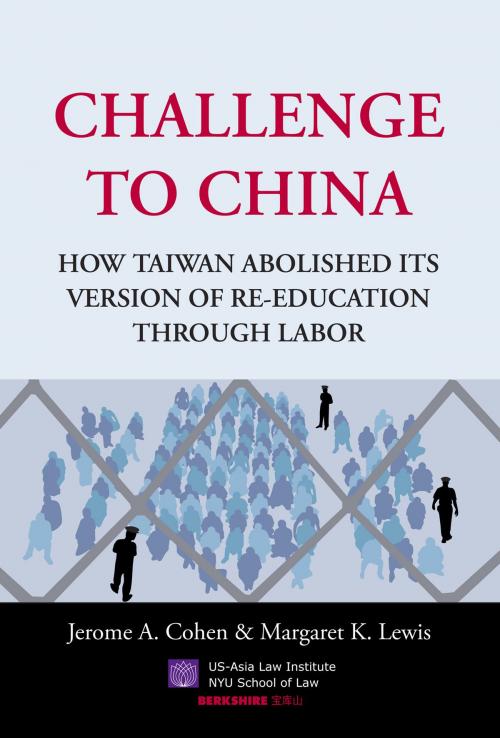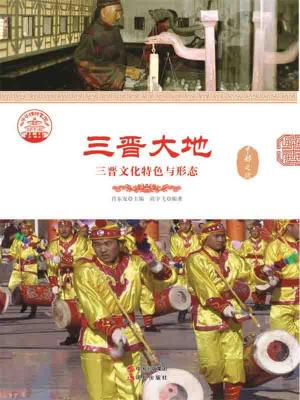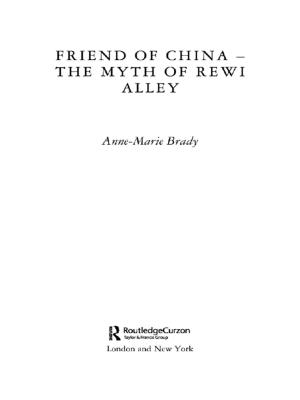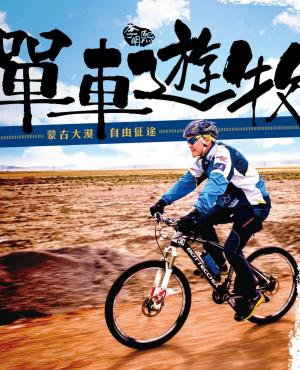Challenge to China
How Taiwan Abolished Its Version of Re-Education Through Labor
Nonfiction, Reference & Language, Law, Civil Rights, Criminal law, History, Asian, China| Author: | Jerome A. Cohen, Margaret K. Lewis | ISBN: | 9781614729334 |
| Publisher: | Berkshire Publishing | Publication: | September 15, 2013 |
| Imprint: | US-Asia Law Institute Books | Language: | English |
| Author: | Jerome A. Cohen, Margaret K. Lewis |
| ISBN: | 9781614729334 |
| Publisher: | Berkshire Publishing |
| Publication: | September 15, 2013 |
| Imprint: | US-Asia Law Institute Books |
| Language: | English |
Challenge to China: How Taiwan Abolished Its Version of Re-Education Through Labor draws attention to an underappreciated aspect of legal reforms in Taiwan, and asks how Taiwan's experience might be relevant to its giant neighbor across the Taiwan Strait. This timely book by Jerome A. Cohen, whose groundbreaking work in the 1960s laid a foundation for the expanding field of Chinese law, and Margaret K. Lewis, professor at Seton Hall University School of Law and an expert on Taiwanese and Chinese law, will be valuable to lawyers, judges, and criminal justice professionals, as well as to anyone interested in the development of criminal justice systems.
The Chinese leadership has for years claimed that it would soon abolish the infamous labor camps for its police-dominated system of "re-education through labor" (RETL) but so far has not taken steps to do so. Although the country's new leadership has signaled that they may finally reform, or perhaps even eliminate, RETL, it is still a reality in Mainland China. Taiwan, however, abolished its own similar system of labor camps for liumang — very loosely translated as "hooligans" — in 2009, standing as a challenge to Mainland China to outlaw, at last, its analogous system. Taiwan’s success in curbing arbitrary police power challenges its neighbor across the strait to follow through on years of false starts on reining in the most egregious exercises of unfettered police power.
For source material, the book looks to Taiwan's conventional laws, rules, and regulations; judicial decisions and other government publications; scholarly writings; newspaper and magazine articles; the authors' conversations with judges, prosecutors, lawyers, police, and scholars; and visits to government agencies, police stations, and even the institutions for punishing liumang. The book's crisp, clear presentation makes it accessible to the general reader as well as to China specialists.
Challenge to China: How Taiwan Abolished Its Version of Re-Education Through Labor draws attention to an underappreciated aspect of legal reforms in Taiwan, and asks how Taiwan's experience might be relevant to its giant neighbor across the Taiwan Strait. This timely book by Jerome A. Cohen, whose groundbreaking work in the 1960s laid a foundation for the expanding field of Chinese law, and Margaret K. Lewis, professor at Seton Hall University School of Law and an expert on Taiwanese and Chinese law, will be valuable to lawyers, judges, and criminal justice professionals, as well as to anyone interested in the development of criminal justice systems.
The Chinese leadership has for years claimed that it would soon abolish the infamous labor camps for its police-dominated system of "re-education through labor" (RETL) but so far has not taken steps to do so. Although the country's new leadership has signaled that they may finally reform, or perhaps even eliminate, RETL, it is still a reality in Mainland China. Taiwan, however, abolished its own similar system of labor camps for liumang — very loosely translated as "hooligans" — in 2009, standing as a challenge to Mainland China to outlaw, at last, its analogous system. Taiwan’s success in curbing arbitrary police power challenges its neighbor across the strait to follow through on years of false starts on reining in the most egregious exercises of unfettered police power.
For source material, the book looks to Taiwan's conventional laws, rules, and regulations; judicial decisions and other government publications; scholarly writings; newspaper and magazine articles; the authors' conversations with judges, prosecutors, lawyers, police, and scholars; and visits to government agencies, police stations, and even the institutions for punishing liumang. The book's crisp, clear presentation makes it accessible to the general reader as well as to China specialists.















